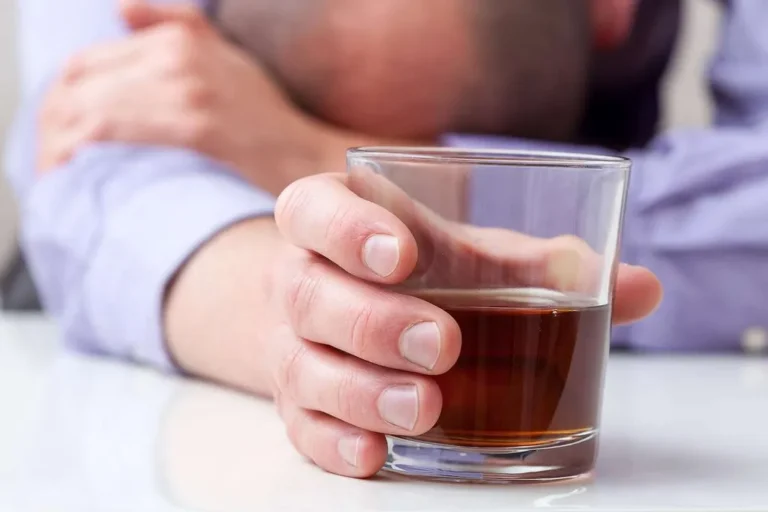Everything About Alcohol as a Coping Mechanism

Addiction is a psychological disorder that anyone can face. The National Survey on Drug Use and Health (NSDUH) published a study, according to which up to 49 million people in the USA have a drug or alcohol use disorder (AUD). Sometimes people choose alcohol as a coping mechanism. Below, we will talk about why this only makes their situation worse and how to stop stress drinking.
Is Alcohol a Coping Mechanism?
AUD is often associated with the fact that people consume alcohol to decrease stress. The culture in the United States glorifies strong drinks as a way to relax after a hard day at work or binge-drinking on the weekend. However, drinking as a coping mechanism has serious negative consequences.
A coping mechanism is a habit that helps a person overcome problems. Psychologists explain such mechanisms bring people real or imagined help, but some of them can exacerbate the situation in the future.
We want to note that drinking hard liquor is a standard method of dealing with stress. For some people, the temporary benefits of strong drinks become more important than the negative consequences in the future. Regular consumption of whiskey or rum can lead to serious illnesses, deterioration of relationships with loved ones, and alcoholism.

Take back control of your life and start on the road to recovery now.
Who Uses Alcohol as a Coping Mechanism?
There are many reasons why people use alcohol as a coping mechanism. Anyone can experience AUD, regardless of age, gender, or nationality. Typically, these people experience many problems at the same time. Understanding these reasons helps you to prevent addiction.
- Family background. If you have relatives who abuse hard liquor, you are at a higher risk of developing AUD than people without such a genetic factor. According to research, genes contribute to the development of alcoholism, especially those that affect the metabolism of alcohol.
- Mental health. People with mental illnesses try to find methods to eliminate symptoms. Strong drinks and drugs are two popular and obvious solutions. It is critical to remember such an improvement is temporary and can worsen the situation. After the symptoms intensify, the coping drinker may consume even more liquor, which leads to addiction.
- External circumstances. People often do not realize how much their environment affects them. If you spent your childhood in unfavorable areas, the risk of developing AUD and using drugs to cope with stress increases.
Unfortunately, people with alcohol addiction often do not want to admit they have a problem and try to find excuses to continue drinking. It is essential to remember that large doses of alcohol and mental health are incompatible.
Dangers of Using Alcohol as a Coping Mechanism
Not all patients realize what alcohol as a coping mechanism may lead to. Let’s look at the primary difficulties such patients face.
- Development of addiction and deterioration of health. All people have an increased tolerance to strong drinks as the dose and period of their use rise. To achieve a similar effect, they need more beverages. When addiction occurs, a person gets so used to booze that they experience withdrawal symptoms, including tremors.
- Deterioration of relationships with loved ones. Using alcohol to overcome difficulties often affects relationships with loved ones. In an optimistic scenario, this leads to alienation. In the worst case, abuse of strong drinks leads to aggression, scandals, and a halt in communication.
- Problems with using alternative options for coping with difficulties. Some people choose strong drinks because they feel lonely and do not know how to overcome stress. Healthy methods of dealing with difficulties include creating healthy relationships, practicing problem awareness, and consulting a psychotherapist. Wine or rum narrows your horizons.
As we can see, liquor abuse worsens health, distances a person from loved ones, and does not allow one to be distracted by other interesting things.

How to Stop Drinking Alcohol to Cope with Stress?
Many people consume strong drinks due to stress, but this is an unhealthy trend. Such drinks boost anxiety due to the constant desire for relaxation that comes from intoxication. Let’s consider how to stop using alcohol as a coping mechanism.
- Get to the root of the problem. Fighting addiction creates an invisible interlayer between reality and the reasons that prompt you to drink. Identify the root causes of your alcohol adventures to understand your thoughts and feelings.
- Work with past trauma. Constant drinking is a typical response to trauma. Interacting with a psychotherapist may help determine and eliminate past traumas that impact your current state. Ongoing professional support, understanding of problems, and healing will provide you with the calm you seek with liquor.
- Eliminate worries about the future. Often, we worry about what will happen next due to health problems, unstable relationships, or work. Such anxious thoughts usually provoke people to increase their doses of strong drinks. Journaling is an essential part of recovery, as it helps to understand the causes of stress and how to handle them. Writing down your experiences on paper or electronically allows you to define why unpleasant feelings arise and how to eliminate them, rather than using alcohol to cope with stress.
In many situations, the best strategy is to resist the sudden desire to drink and then relapse into binge-drinking. Keep alcohol in small quantities at home, or give it up altogether. If you feel guilty about not having a beer with friends, realize this is not forever. Once the desire becomes more manageable, you can return to small doses.
Alternative Options to Eliminate Stress
We often find it challenging to cope with life’s problems and stress. We feel powerless and want to forget about all the troubles. Alcohol seems like a quick and easy solution to problems, but in the long term, it makes the situation worse. Let’s consider other ideas for coping skills for addiction.
- Physical exercise. This is a good solution to activate the production of endorphins, reduce stress levels, and improve well-being. You may choose swimming, yoga, running, or any other type of physical exercise. Regular exercise will improve your physical and mental health.
- Meditation. Regular relaxation practices will allow you to forget about stress. Meditation helps you feel life in the present and sort out your thoughts and feelings.
- Creative activities. You may write a story, come up with a melody, or take up painting. You do not have to be an experienced musician or writer. Creative leisure will help you find inspiration and bring back the joy of life.
- Spending time with loved ones. Talking to friends, family, or a support group helps you not to feel like an outcast.
- A healthy lifestyle. Switching to a diet, getting healthy sleep, and avoiding beverages and drugs may help you have a more positive outlook.
An excellent solution to reduce the dose of alcohol and stress is self-care. Take a bath, book a massage, or lie in bed all day with an interesting book to relieve tension. These treatments will bring back your joy in life.

This can be a difficult journey, but you don’t have to go it alone. Let us be your guide and provide you the environment needed to regain control of your life and begin the path to recovery.
Final Words
If you or someone you love prefers alcohol as a coping mechanism, we recommend contacting an addiction specialist. Talking to a professional will help you determine how often you use hard liquor to forget about difficulties and how it may affect your life. Specialists will help you understand whether you need treatment for alcohol addiction.
In Eco Sober Houses, you will find an alcohol-free space where you can live while battling addiction. We create a supportive environment with a like-minded community that allows you to focus fully on your recovery journey.




